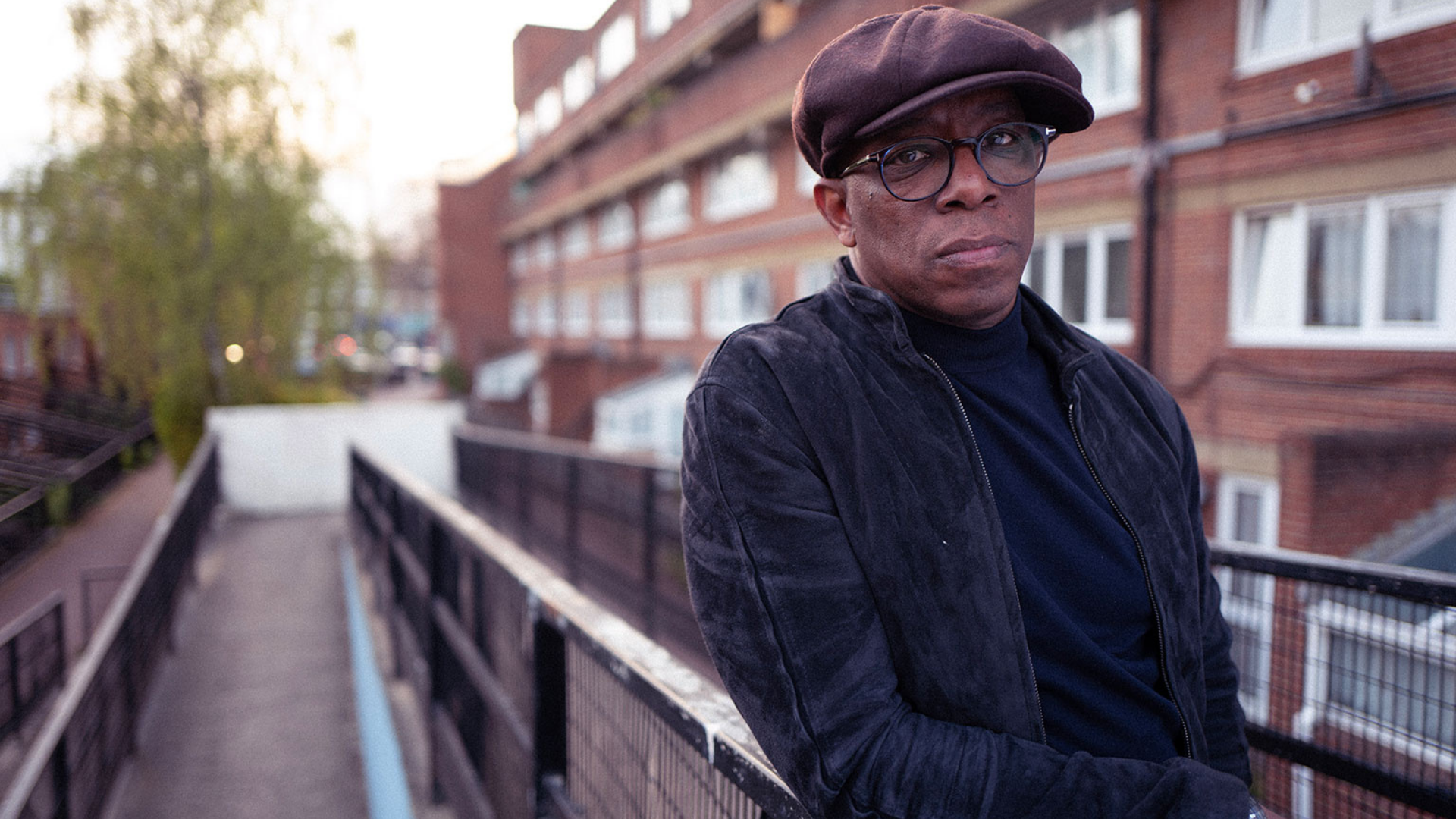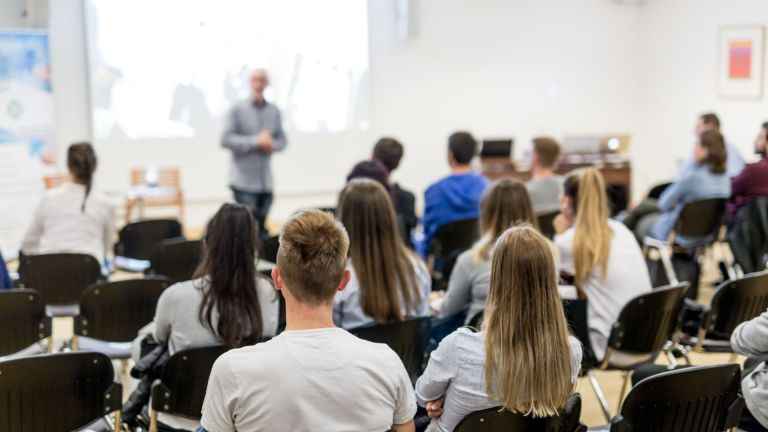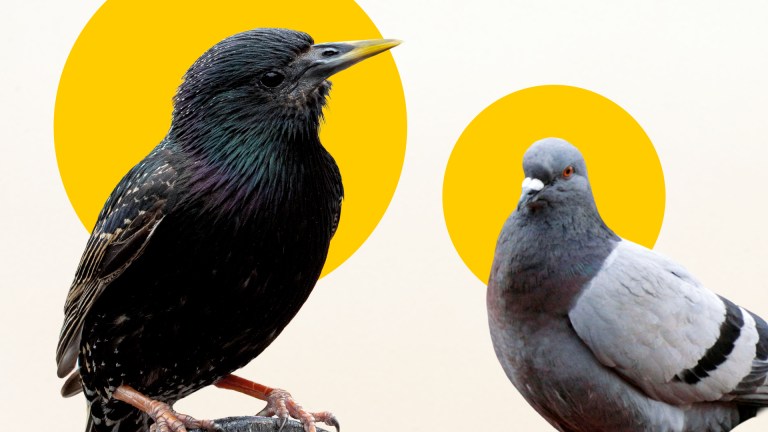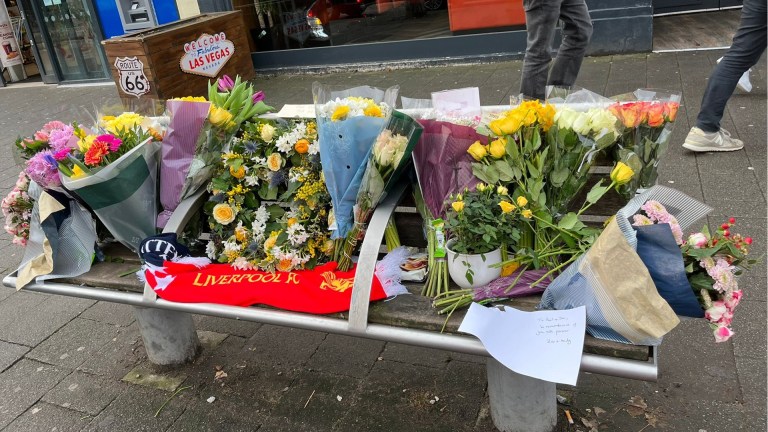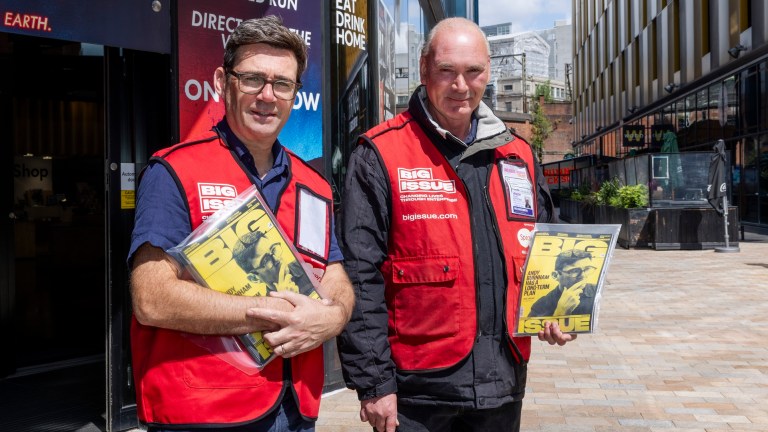“What I think about more than anything else is how much I didn’t realise how unhappy I was. I didn’t say anything to anybody. I just felt like, why is this happening to me, why do they dislike me so much? Why is my stepdad so nasty? And my mum so nasty?
Support The Big Issue and our vendors by signing up for a subscription.
“I can remember clearly seeing my stepdad manhandling my mum. She was so small. We were all living in the same room, so my brother and me would have to turn away. And my stepdad would do whatever he did.
“The worst thing was when you could hear it but you couldn’t see it,” he added. “That frightened me the most. Because he was such a big guy and you didn’t know what he was doing and she was so much smaller. You could hear her apologising. Even to think about that now, it’s always hard.”
The interview comes ahead of a new BBC documentary. In Ian Wright: Home Truths, he revisits the house and room he grew up in, which still brings back painful memories. He meets other domestic abuse survivors to learn about their experiences and talks to support workers tackling the issue today.
In the last year, 1.6 million women experienced domestic abuse and in 90 per cent of cases, there is a child present.
Advertising helps fund Big Issue’s mission to end poverty
According to Women’s Aid, a charity which fights to end domestic violence, one in seven young people under the age of 18 will have lived with domestic violence at some point.
The issue has been brought into stark focus during the pandemic, with some victims trapped at home with no escape from their abusers. Calls to the UK’s largest domestic abuse helpline rose week on week in 2020 as Covid raged.
In March, Jess Phillips MP, who has become one of the country’s most high-profile domestic abuse campaigners, told the House of Commons society had just “accepted” dead women as she read out the names of 118 women and girls killed as a result of male violence in the last year.
More recently, the Domestic Abuse Act received Royal Assent and is now the law of the land. Campaigners have described the new legislation as a milestone and a “real achievement” for all involved in its passage.
It includes greater protection in family courts, recognition of children as victims, a guarantee that survivors escaping domestic abuse will be in ‘priority need’ for housing and legal duty on councils to fund support in safe accommodation.
Writing for The Big Issue after the new law hit the statute book, Women’s Aid chief executive Farah Nazeer said that while there is much to welcome in the new legislation, campaigning must continue to address its gaps.
Advertising helps fund Big Issue’s mission to end poverty
“Although local authorities are now required by law to fund support for survivors in ‘accommodation based’ services, the Act does not use the word ‘refuge’ at all,” she said.
“We have a real fear that by not specifying the need for a refuge, women and their children fleeing abuse could be placed in unsafe hostels or B&B accommodation.
“We are already seeing landlords with no experience in domestic abuse setting themselves up as providers of emergency accommodation, and we have fears over these being funded in place of desperately needed women’s refuges.
“A refuge is so much more than a roof over your head. It is a place where experienced domestic abuse support workers give dedicated support, meaning that survivors feel safe and understood, and receive expert support to recover from trauma and start a new life.”
Ian Wright: Home Truths is on BBC One on May 6 at 9pm and then on iPlayer
Read the full interview with Ian Wright in this week’s edition of The Big Issue available now from your local vendor. The pandemic has been an incredibly tough time for our vendors so please support them now they are able to sell their magazines again.
Advertising helps fund Big Issue’s mission to end poverty
